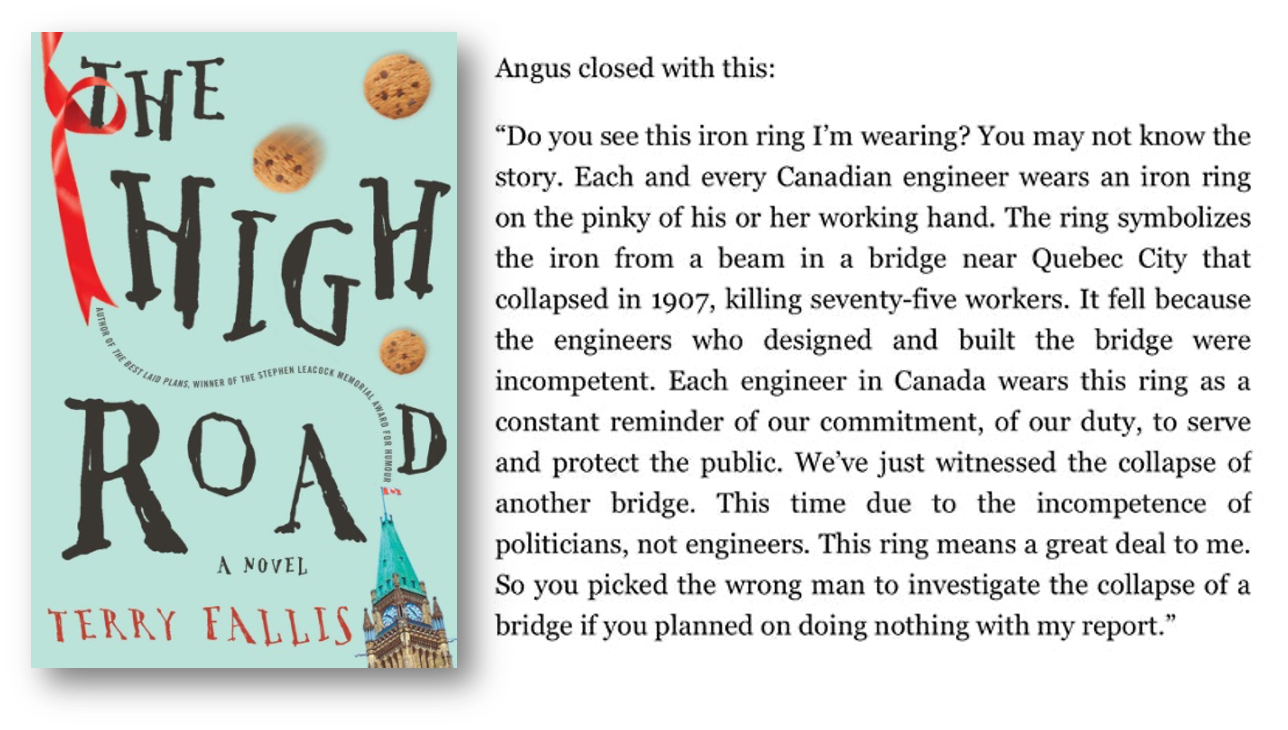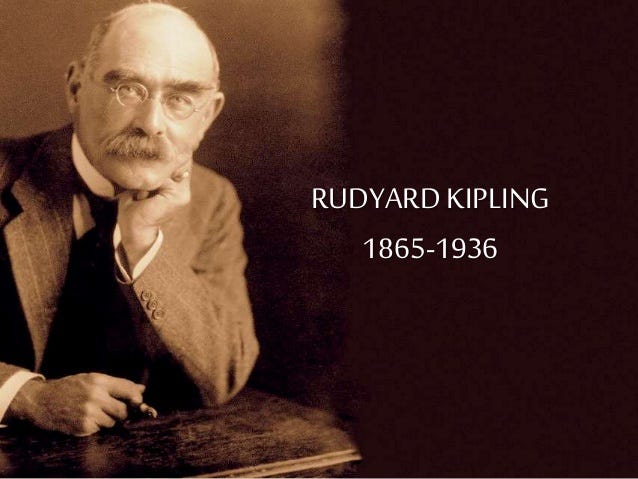Modernizing Rudyard Kipling’s “Calling of an Engineer”
Writing life: 72
When I earned my Bachelor of Engineering at McMaster University back in the early 1980s, my fellow fourth year students and I gathered in the spring for a ceremony called the Ritual of the Calling of an Engineer, largely conceived and written by the famous British writer, Rudyard Kipling. At that assembly, we received our iron rings, placed on the pinky of our working hand as a constant reminder of our commitment to public safety.
I described this ceremony and the tragedy that inspired the iron ring in this earlier post: The engineer inside the writer? You may wish to scan it as helpful context for this post. I also wrote about the iron ring in my second novel, The High Road, when Angus McLintock is presenting his findings to Cabinet on the collapse of Ottawa’s Alexandra bridge.

An organization known as the Corporation of the Seven Wardens governs the Ritual of the Calling of an Engineer ceremonies held at university campuses across Canada. These ceremonies are often colloquially know as “Kiplings” after Rudyard Kipling, the famous writer who wrote The Jungle Book. As already noted, he wrote much of what is recited in the iron ring ceremony. But he wrote it a long, long time ago. Over the years there have emerged growing and legitimate concerns with the outdated language found in Kipling’s nearly one-hundred year old poetry typically used in the ceremonies. So early last year, an official call for new poems—one English and one French—was issued by the Corporation of the Seven Wardens. You can read more about that here.
The language in the new poems would be more modern, gender-neutral, and reflect the diversity of contemporary Canadian society. They also wanted to be able to recognize Canada in the poem’s language. Are you still with me?

New words to mark the iron ring ceremony
I’m still not sure exactly how it happened, but late last spring, I was invited to join the committee charged with reviewing the submissions and recommending the new English poem to be used during future ceremonies, still known as the Ritual of the Calling of an Engineer. I was honoured and accepted. It is one of the few formal occasions when my engineering background—such as it is—has merged with my writing life. I would have the opportunity to judge the submitted English poems against clear criteria, and work with my wonderful colleagues on the committee to recommend to the Corporation of the Seven Wardens a new English poem to replace the nearly one hundred year old words of Rudyard Kipling.
The seven of us on the committee met several times via Zoom to confirm what we ought to be looking for in the submissions and then to review the 16 submitted English poems. We developed a detailed scoring matrix to aid in our deliberations. We were a diverse group of women and men—engineers all—from across the country. I seemed to be the only one among us who had never practiced engineering. But since we were judging poetry, and words, and language, I felt at home around the table. It was heartening to see that the committee had little difficulty reaching a consensus on the top three or so poems, and then agreeing on the single poem we wanted to recommend.
I’m gratified to report that our recommended English poem, submitted to the Corporation of the Seven Wardens back in July, was recently accepted, and is now being rolled out across Canada to be incorporated in the next round of the Ritual of the Calling of an Engineer ceremonies.
While we were judging the submitted poems, we did not know who had written them. This is not uncommon in juried competitions. So I’m very pleased to congratulate Gisela Hippolt-Squair on her fine composition. It captures, in stirring words and sentiments, the pride, and sense of responsibility we hope to engender in newly-graduating engineers as they first slip on their iron ring after such an arduous academic journey.
Here is the winning English Poem.
Wrapping up…
As I’ve written before in this space, while I’ve never practiced engineering, I still feel deeply about the field. In fact, I still think like an engineer and bring an engineer’s sensibility to almost everything I do, including writing novels. So I thoroughly enjoyed serving on this committee and contributing to the reform of an important, nearly century-old ceremony, that every Canadian engineer will remember for the rest of their lives. It was an honour and a privilege.
Here’s hoping you’ve enjoyed this piece (a tad obscure though it may be) and will decide to subscribe. It’s free and easy and you’ll never miss a future post. In fact, every other Sunday morning, a new post will simply arrive in your email inbox. Now isn’t that convenient? Many thanks and we’ll see you in two weeks.







Thank you for this insight. Kipling was a chronicler of his time, which was not our time, so this update is, well, timely. Like many of us, he wrote some wise, witty words and some appalling ones.
In the wise, witty vein, at this time of year I like to base my resolutions on his poem that begins like this:
I am resolved—throughout the year
To lay my vices on the shelf;
A godly, sober course to steer
And love my neighbours as myself—
Excepting always two or three
Whom I detest as they hate me.
A tad obscure? Huh! Okay, "obscure" has a fine...ring to it. Have a great seasonal celebration, Terry...and happy almost birthday...